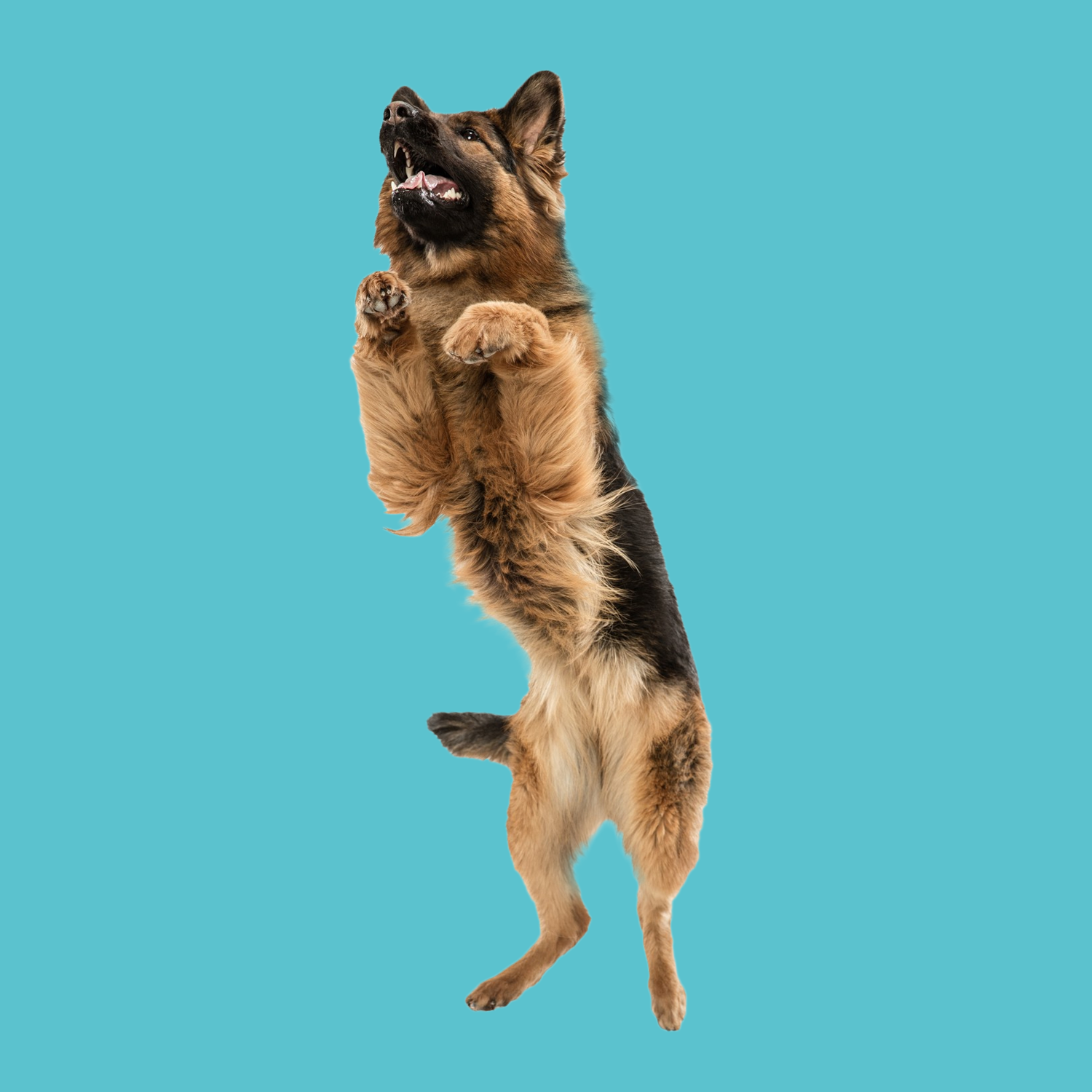Hip and Elbow Dysplasia
German Shepherds can be born with a genetic health condition known as hip dysplasia. This medical constraint involves a misalignment of the hip ball and pelvis joints and results in symptoms such as lameness and decreased physical activity levels. Unlike hip dysplasia, elbow dysplasia is associated with improper development of the elbow during babyhood.
If you notice that your beloved companion is experiencing discomfort related to limb immobility and movement, be sure to immediately visit a veterinarian. Whether it’s medical treatment, physical therapy, or surgical intervention, the knowledge and experience of a specialist will make the decision-making process especially easy for you.
Fortunately, German Shepherds who have to deal with this health condition, thanks to the support and competent care of their family members, can preserve the old pace of life and create moments full of happiness.
Bloating
While bloat is considered a harmless problem for humans, it can even be fatal in companion animals. Stomach bloating caused by excess air inhaled during eating or exercise often requires immediate medical attention. To prevent the problem, it’s wise to pay attention to symptoms such as vomiting, a full stomach, or excessive salivation. If you notice any signs, please contact your veterinarian immediately.
To avoid bloat, it is advisable to divide the daily ration of your loyal companion’s food into at least two meals. It’s recommended that you also pay attention that your furry friend doesn’t drink a lot of water after eating. To avoid bloating and swallowing food quickly, competent parents often prefer special cups with a raised center. You can buy them at any pet store near your accommodation.
Myelopathy
Myelopathy significantly damages the spinal cord of our devoted companions. Clear signs of this genetic disorder incorporate difficulty in maintaining balance and problematic movement. Although myelopathy in German Shepherds is incurable, there are many things that responsible parents can do for their beloved family members to make their lives more comfortable and delightful. In such cases, consultation with a veterinarian is the best solution.
Eye Problems
German Shepherds are also characterized by vision problems. But, don’t worry, detecting this problem at an early stage can lead to an effective treatment. It’s advisable to focus on the accompanying symptoms of the problem, such as difficulty avoiding physical obstacles, excessive tearing, and obvious discomfort caused by bright lights. Your attention to detail as a competent parent will allow the veterinarian to stop the progression of the disease at an early stage of development and significantly improve your beloved friend’s vision.
Allergic Background
Your companion animal may develop an allergic reaction to certain foods over time. Food allergies in German Shepherds are most often associated with wheat, eggs, soy, and milk. Symptoms characteristic of this type of allergy often appear on the skin and digestive system.
Along with food, environmental pathogens such as dust, perfume, or aerosols may also trigger an allergic reaction in companion animals. Environmental pathogens can cause wheezing, itching, sneezing, and even a sharp drop in energy levels. As for insect bites, the German Shepherd is particularly allergic to flea bites. Along with itching, flea bites also leave red spots on the skin of the companion animal.
The accompanying symptoms of an allergic reaction are initially manifested in a mild form, however, over time, the discomfort increases significantly. We advise that you carefully observe your companion animal and immediately consult a veterinarian in case of severe allergy symptoms. To determine the cause of the allergy, the veterinarian may suggest blood, saliva, or skin tests.

